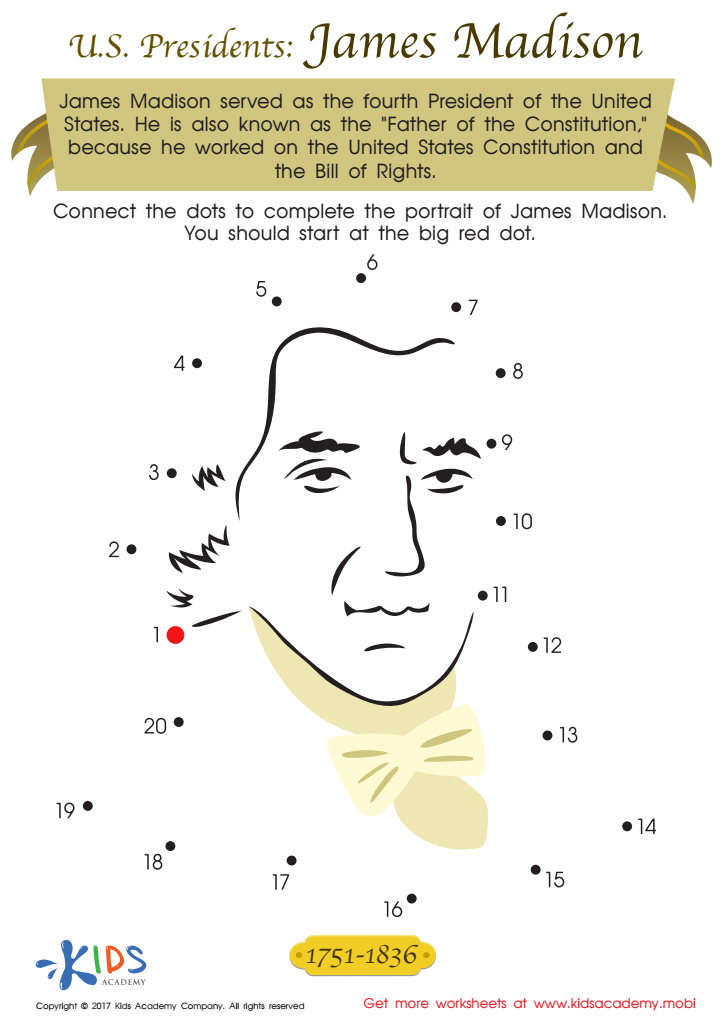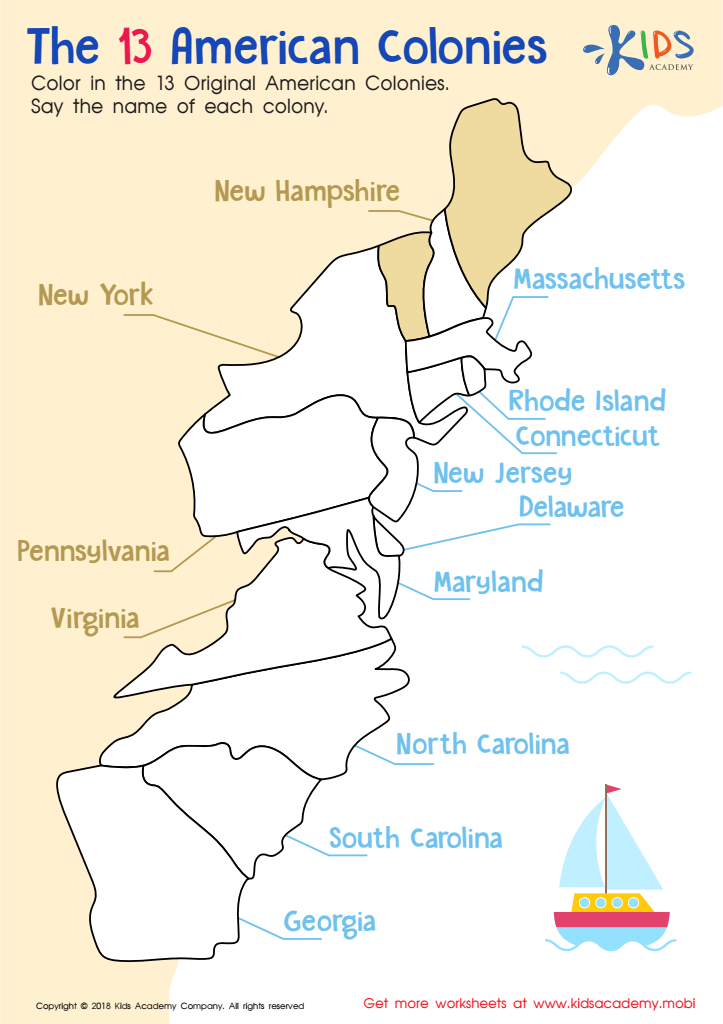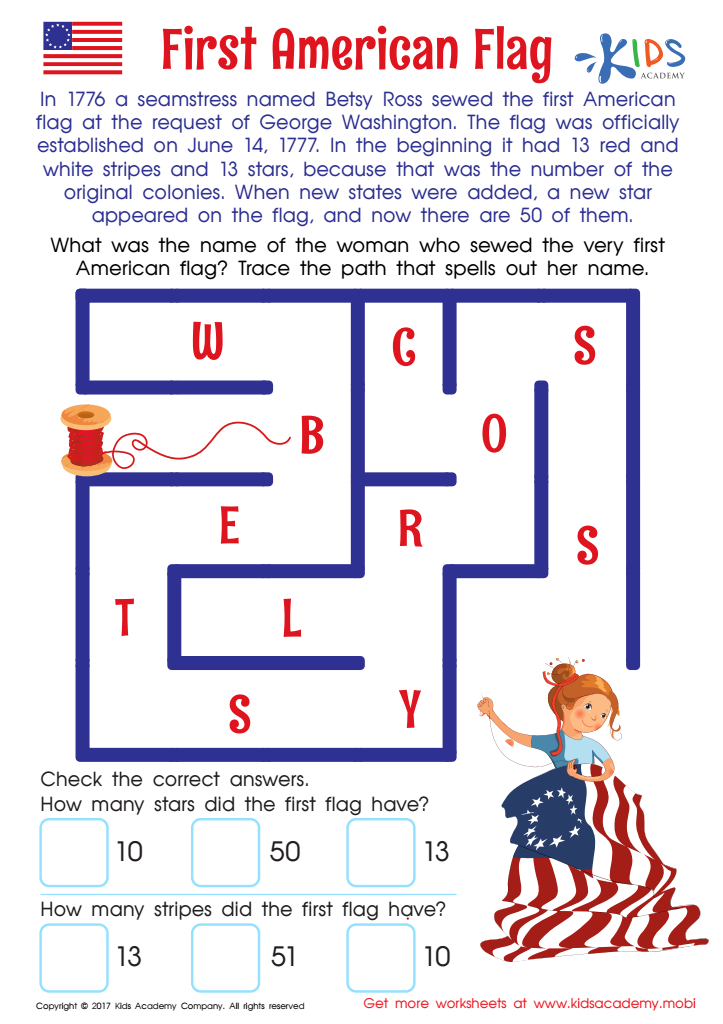Understanding history History Worksheets for Ages 3-7
3 filtered results
-
From - To
Welcome to our Understanding History Worksheets for Ages 3-7! Designed to engage young minds, these interactive worksheets introduce children to fundamental historical concepts through fun and relatable activities. Our resources encourage curiosity about the past by exploring timelines, important figures, and significant events in an age-appropriate manner. Each worksheet is crafted to enhance vocabulary, comprehension, and critical thinking skills while sparking a love for history. Ideal for both classroom use and home learning, these printable activities make understanding history enjoyable and accessible, nurturing future learners to appreciate their cultural heritage and societal development. Dive into history with us today!


President Madison Printable


The 13 American Colonies Worksheet


First American Flag Worksheet
Understanding history is vital for children aged 3-7 as it lays the foundation for critical thinking, social awareness, and identity formation. During these early years, children are naturally curious about their world, and introducing them to history nurtures that curiosity. Learning about history helps children understand where they come from, making connections to their own families and communities while fostering a sense of pride and belonging.
As children explore historical figures, events, and cultures, they develop empathy by learning about different perspectives and experiences. This fosters an appreciation for diversity and strengthens their social skills. Engaging with history encourages children to ask questions, think critically, and draw parallels between the past and their present, which are essential skills for academic growth.
Moreover, understanding history lays the groundwork for civic awareness and responsibility. By learning about significant events and people, children begin to understand their role as informed citizens in their communities.
Parents and teachers who prioritize history education contribute to a well-rounded and enriched learning environment. Through stories, discussions, and activities, they can cultivate a love for learning and ensure that children develop a meaningful connection to the past that will benefit them for years to come.
 Assign to My Students
Assign to My Students




















